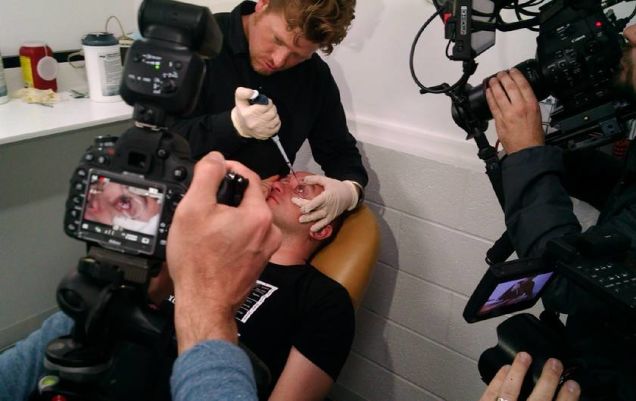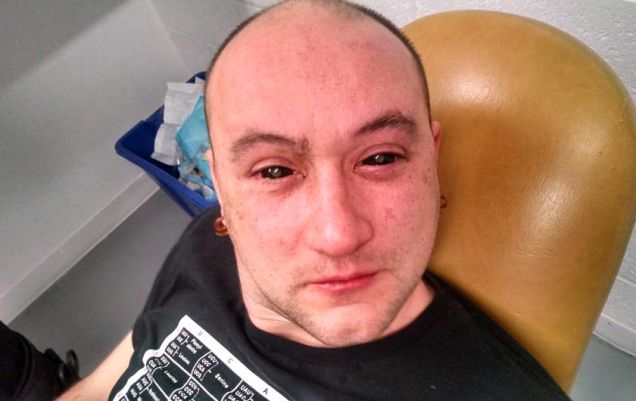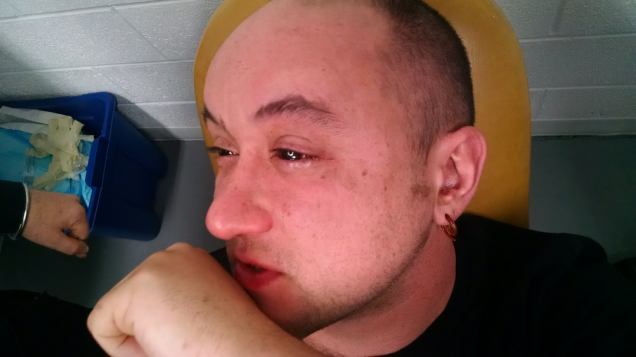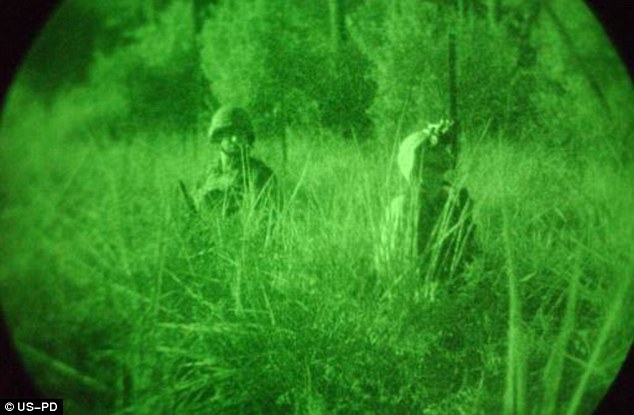This Man's Eyeballs Were Injected To Give Him The Ability To See In The Dark
In other words, he became a superhuman!
A team of biohackers have successfully figured out a way to inject our eyeballs with a simple chemical mixture to allow us temporary sense of night vision. The procedure has allowed one superhuman to temporarily see over 164 feet in the dark, according to Mic.
The group called Science for the Masses theorised that they could enhance healthy eyesight enough that it would induce night vision. To do this, the group used a kind of chlorophyll analog called Chlorin e6 (or Ce6), which is found in some deep-sea fish and is used as an occasional method to treat night blindness, Mic reported.
According to io9, back in 2012 a patent was filed by Totada R. Shantha on a mixture that, when absorbed by the retina, would act to induce night vision — the ability to see nearby objects in low light conditions. The patent holders claimed it was safe to use for treating a condition known as night blindness, but also for improving night vision in healthy people.
The Science for the Masses hackers basically used this same formula, but they created their own concoction by adding both insulin and dimethlysulfoxide (which increases permeability) to the saline solution (normally, just insulin is used in conjunction with Ce6 and saline), io9 reported. The compound works by influencing the way our retina's light-sensing rods work in the dark.
"Going off that research, we thought this would be something to move ahead with," the lab's medical officer, Jeffrey Tibbetts, told Mic. "There are a fair amount of papers talking about having it injected in models like rats, and it's been used intravenously since the '60s as a treatment for different cancers. After doing the research, you have to take the next step."
To do so, team biochem researcher Gabriel Licina became a guinea pig.
Max Plenke from Mic spoke to Licina about what happened next:
"To me, it was a quick, greenish-black blur across my vision, and then it dissolved into my eyes," Licina told Mic.
And then they waited. From the patent they read, the effects start kicking in within an hour. Licina and Tibbetts had done their research, going so far as to post a paper called "A Review on Night Enhancement Eyedrops Using Chlorin e6." But they are, after all, a bunch of guys working out of a garage. So they went out to a dark field and tested Licina's new superpowers.
Did it work? Yes. It started with shapes, hung about 10 meters away. "I'm talking like the size of my hand," Licina says. Before long, they were able to do longer distances, recognizing symbols and identifying moving subjects against different backgrounds.
"The other test, we had people go stand in the woods," he says. "At 50 meters, we could figure out where they were, even if they were standing up against a tree." Each time, Licina had a 100% success rate. The control group, without being dosed with Ce6, only got them right a third of the time.
While as fascinating as it sounds, as the do-it-yourselfers point out, you need to be very careful if you wish to try this at home
"You can see the black smudge of a little bit of solution on my face where a bit dripped out," writes Licina at the group's website. "If it looks like my eyes hurt, they did. I think that was just from the speculum tho…"
Image via io9"Increased light amplification may have adverse effects on the cellular structure of the eye if improperly used and the some of the materials used in this mixture should not be used on humans or animals." The purpose of the study was for "research and informative purposes only."
 io9.com
io9.com
What are it's potential applications? There are many.
In addition to treating disease, Ce6 could be used to enhance night vision in soldiers, night patrollers, police, night drivers, factory workers, and anyone else involved in work, travel, and fun after the sun goes down.
 io9.com
io9.com



